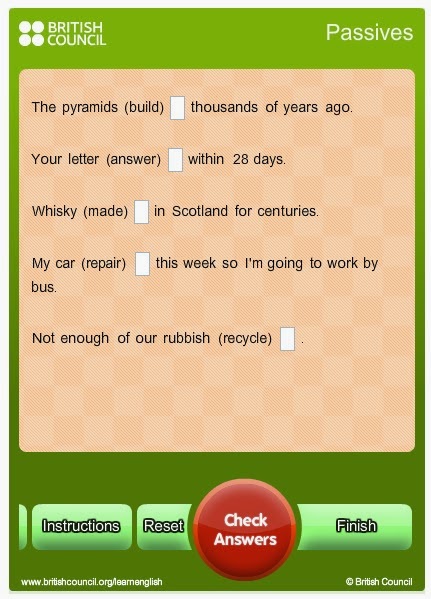1) … when we don’t know, or we are not interested in, who does an action.
- My car was stolen yesterday.
We don’t know who stole the car.
- A lot of wine is produced in France.
It’s not important who produces the wine.
2) … when the main topic of the sentence isn’t who did the action.
2) … when the main topic of the sentence isn’t who did the action.
- Television was invented in the 1920s by John Logie Baird.
The main topic here is television – we aren’t particularly interested in ‘who’.
- Kennedy was assassinated in 1963.
In English we tend to put the most important thing at the start of the sentence.
3) … more in written English than in spoken English.
3) … more in written English than in spoken English.
- War and Peace was written by Tolstoy.
You often see the passive in textbooks.
- The mixture is heated to 500˚C.
Scientific texts especially use the passive.
Tenses
The passive can be used with all tenses - the form of ‘be’ changes.
Tenses
The passive can be used with all tenses - the form of ‘be’ changes.
- What is tiramisu made from?. Present Simple.
- The hall is being painted this week so our class will be in a different room. Present Continuous.
- Oranges have been grown here for centuries. Present Perfect.
- When he got home he found that his flat had been burgled. Past Perfect.
- The work won’t be finished until next week. Future Simple.
Modal verbs also use ‘be’ and the past participle.










